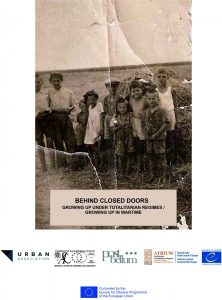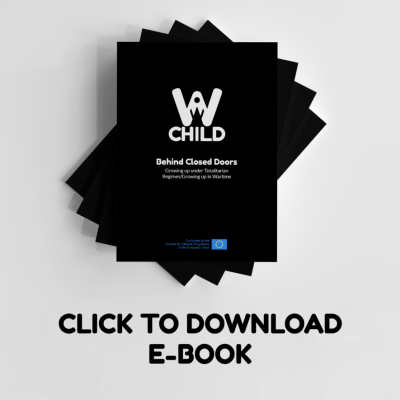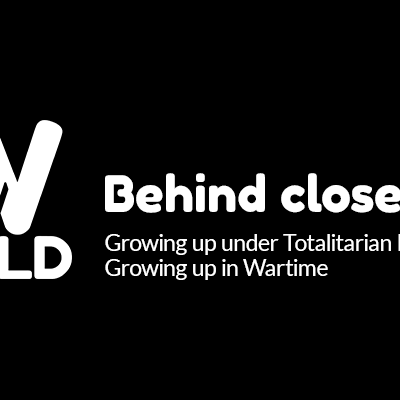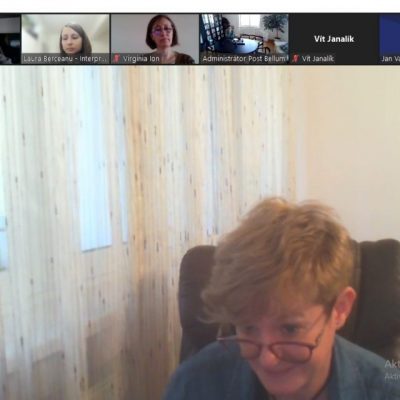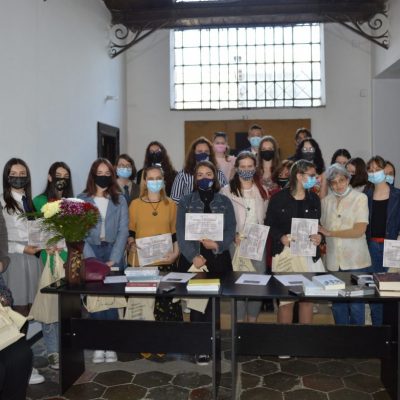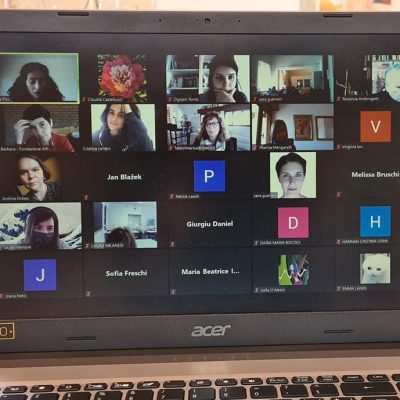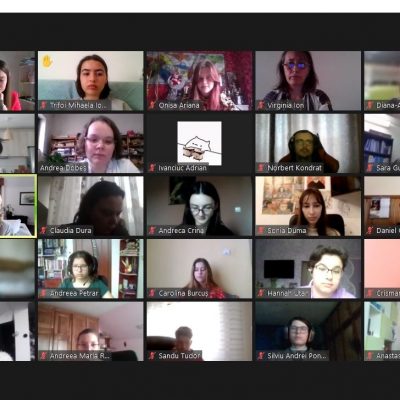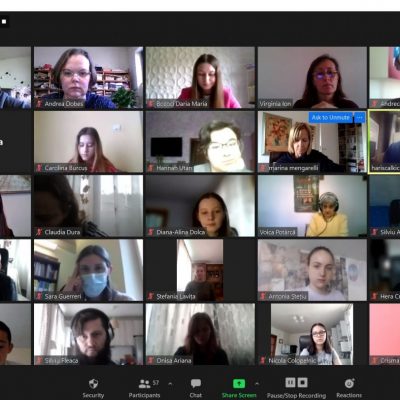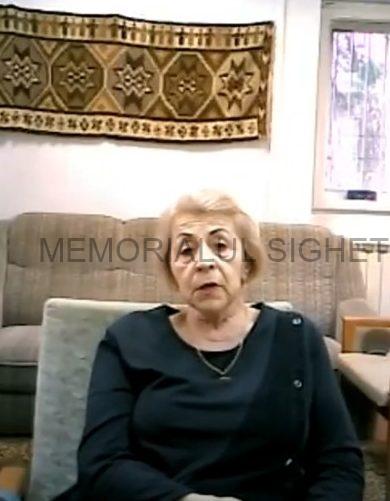Growing up under Totalitarian Regimes / Growing up in Wartime
A project co-founded by the the Europe for Citizens Programme of the European Union.
The project is developed through the partnership of four organizations from four countries affected in the 20th century by wars and / or totalitarian regimes: URBAN Association (Bosnia and Herzegovina) (lead partner), Civic Academy Foundation – Memorial to the Victims of Communism and to the Anticommunist Resistance (Romania), ATRIUM Association (Italy) and Post Bellum (Czech Republic).
The aim of the project is to stimulate the reflection of young people from the four countries – Bosnia and Herzegovina, Romania, Italy and Czech Republic – on how the totalitarian regimes in Europe and armed conflicts in Bosnia affected the way of life of children so as to better understand the brutality of those systems, to comprehend and appreciate the benefits and rights that are given by peaceful and democratic Europe, as well as to commemorate and pass on the stories of the victims of these crimes. This objective will be reached through different activities:
– collection of micro-stories in each involved country about personal experiences and life of ordinary people who lived their childhood under totalitarian regimes;
– implementation of “Twinning through History” activities by involving young participants (students) to “adopt “personal stories and to take care of them by trying to get closer to the life of the person that suffered by enriching it with further personal research;
– meeting between students and witnesses: people who lived their childhood under Communism in Estonia/Romania, Fascism in Italy and Civil War in Bosnia and Herzegovina;
– organization of public events such as reading of stories, visiting of places that marked the life of witnesses;
– realization of a documentary movie about micro-stories to be shown at Sarajevo Film Festival and production of e-book to disseminate stories also in other countries.
The project has been developed around two topics, which are strictly interconnected when it comes to the Memory and Historical changes in recent Europe’s history: CHILDHOOD under totalitarian regimes/war and EVERYDAY LIFE in totalitarian regimes and societies affected by civil war.
Both in totalitarian regimes and in societies affected by armed conflicts, the CHILDREN are the most vulnerable part of population.
In the war, the children/youth are confronted with physical harm, violence, exploitation, fear, loss. Communities are ripped apart and can no longer provide a secure environment for children. They remain victims also after the war: loss of confidence, loss of trust in others and in the future, depression, withdrawn.
On the other side, the totalitarian propaganda worked very hard to present children as the loyal socialists/fascists and the childhood as an innocent, happy and fulfilling time. However, this was not the case for the millions of children whose parents were caught up in regime’s terror. As it is known, the totalitarian regimes were characterized by extensive repression with large number of population living in fear. This climate of fear was even extended to young children. The children of “state enemies” were often raised in the camps or in state orphanages. Some were sent into exile with their families and other were left to fend for themselves.
The second topic (EVERYDAY LIFE) is related to personal experiences and way of life of millions of young that suffered under totalitarian regimes and wars in Europe’s modern history. The everyday stories/experiences are often considered as “apparently non-significant” within the general framework of important historical events but they can be fundamental in helping new generations to reconstruct historical events and to better understand their causes and consequences.
About the partners
URBAN Association was founded in Sarajevo in 2007 with the goal of promoting culture in BiH and it is one of the most active actors on the BiH cultural scene nowadays. Besides being the organizer of the biggest Festival of Photography in Balkans (Balkan Photo Festival), in 2017, the Association opened the War Childhood Museum in Sarajevo which has garnered recognition as the world’s only museum focused exclusively on the experience of childhood affected by war. The 2018 Council of Europe Museum Prize has been awarded to the Museum as a “powerful self-sustained model of civic initiative” aims to fill in an existing gap in documenting war experiences from child’s perspective. The Museum is based on several collections (personal belongings, video testimonies, letters, photos, diaries and other documents) and it implementing a number of educational activities with schools and teachers.
The Civic Academy Foundation was founded in 1994 by two well-known Romanian writers, Ana Blandiana and Romulus Rusan, with the aim to provide civic education by knowing the recent past of Romania and of Eastern Europe. Its main project is the Memorial to the Victims of Communism, which became the world’s first memorial to the victims of communism. The Memorial has sixty permanent exhibition rooms, each cell of the prison having been converted into an exhibition space. The main themes are the communist repression, destruction of the rule of law, and its replacement with a totalitarian system. In the last 20 years the foundations organized hundreds of activities (exhibitions, symposia, publications, educational activities, European projects, oral history recordings, book launches etc.) to provide information to citizens to understand what happened in Romania, and in other Eastern European states during the five decades of communism, and to understand the complexity and traumas of the historical period as a whole.
ATRIUM Association is a transnational organization established in 2013 to promote and manage the European Cultural Route “Architecture of Totalitarian Regimes of the 20th Century in Europe’s Urban Memory”. The Association (and the Route) is composed by 16 municipalities from 5 European countries (Italy, Croatia, Bulgaria, Romania and Albania). The Route, recognized as European Cultural Itinerary by the Council of Europe, aims to disseminate knowledge, protect and promote European heritage (both tangible and intangible) associated with the architecture and history of the 20th century, with special focus on periods marked by dictatorial and totalitarian regimes in Europe. Since 2013, the Association is implementing activities aimed at discover shared historical elements and raise awareness on European identity in its unity and diversity: researching activities on dissonant heritage, educational projects with schools, exhibitions, seminars, publications, member of FARO Convention.
Post Bellum is a non-profit organization founded in 2001 by a group of journalists and historians from the Czech Republic, that seeks out and records witnesses’ memories and personal experiences of historical events from throughout the 20th century.
Post Bellum’s core project is the Memory of Nations, a collection of memories from people who experienced the totalitarian eras of the 20th century as well as photographs, newspapers, and various historical records. The collection is comprised of thousands of materials: memories and stories of veterans from World War II, Holocaust survivors, and resistance fighters as well as testimonies from political prisoners, nonconformists, contemporary war veterans, and ethnic minorities. It also includes the experiences of those who were on the repressive side of the totalitarian regimes – State Security, the KGB, and more. All these materials are accessible to the public through an online database.
The project will last 12 months (3 September 2019 – 31 August 2020), with a budget of 98.280,00 Euro.
The end date of the project has officially been postponed on 2 March 2022 due to the Covid-19 pandemic.


